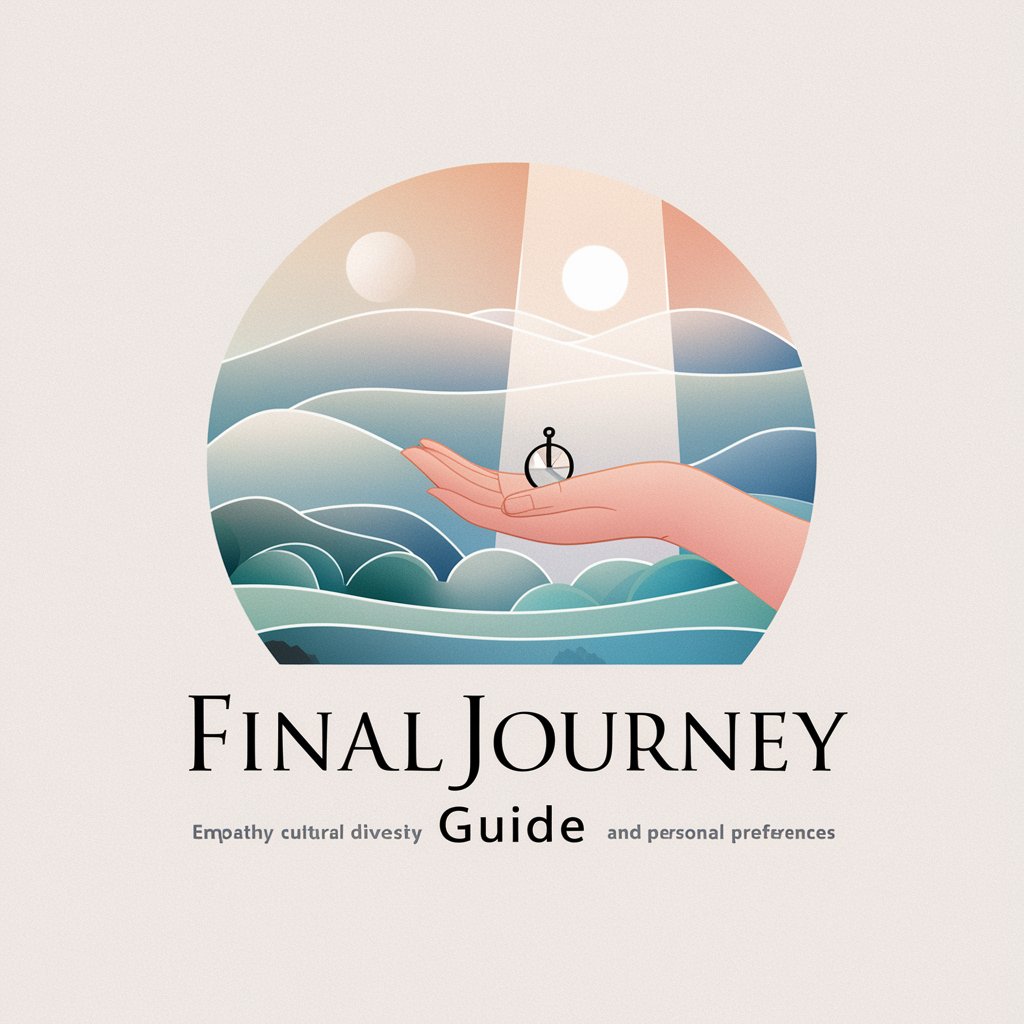6 GPTs for End-of-Life Planning Powered by AI for Free of 2026
AI GPTs for End-of-Life Planning are advanced digital tools built upon Generative Pre-trained Transformers technology, designed to assist individuals, families, and professionals in preparing for end-of-life scenarios. These tools leverage AI to offer personalized guidance, legal document preparation, estate planning advice, and emotional support conversations, aiming to simplify and demystify the planning process for one's end of life. By integrating sophisticated AI models, these GPTs provide insights, generate documents, and facilitate discussions that are tailored to the unique needs and preferences of each user, making the often complex and emotional task of end-of-life planning more accessible and manageable.
Top 6 GPTs for End-of-Life Planning are: Create My (Living) Will,SovereignFool: FinalJourney Guide,Farewell: Find Funeral Homes, Crematories, Caskets,Soul Ties,The Legacy Collective,AceCompassionateGuide
Create My (Living) Will
Simplify Your Estate and Healthcare Planning

SovereignFool: FinalJourney Guide
Compassionate AI for Life's Final Journey

Farewell: Find Funeral Homes, Crematories, Caskets
AI-Powered Compassionate Deathcare

Soul Ties
Empowering Final Journeys with AI

The Legacy Collective
Plan with Compassion, Powered by AI

AceCompassionateGuide
Compassionate guidance at life's final chapter.

Key Attributes of End-of-Life Planning GPTs
These AI GPTs tools stand out for their adaptability, offering a range of functions from generating basic will documents to providing comprehensive estate planning solutions. Features include interactive conversations to explore personal wishes, AI-driven suggestions for estate distribution, capabilities to create legally binding documents, and emotional support mechanisms. Their ability to learn from interactions ensures that the advice and solutions provided become more personalized over time. Moreover, some tools offer technical support, integrate with web services for real-time information, and possess data analysis capabilities to inform decision-making.
Who Benefits from End-of-Life Planning AI Tools
These tools are designed for a broad audience, including individuals looking to start their end-of-life planning, family members assisting loved ones, and professionals in the legal, healthcare, and financial planning sectors. They are accessible to those with no coding skills, thanks to user-friendly interfaces, while also offering advanced customization options for developers and professionals seeking to tailor the tools to specific needs or integrate them into existing platforms.
Try Our other AI GPTs tools for Free
Lexical Expansion
Discover AI-powered tools for Lexical Expansion, designed to enhance vocabulary and language understanding across multiple languages and fields.
Photographic Artistry
Explore how AI GPTs for Photographic Artistry transform creativity and efficiency in photography and visual arts with tailored, advanced AI solutions.
Emotional Interpretation
Discover how AI GPTs for Emotional Interpretation leverage advanced algorithms to understand and respond to human emotions, enhancing interactions across various fields with empathy and insight.
Team Strategy
Discover AI GPTs for Team Strategy: the ultimate tool for enhancing team collaboration, strategic planning, and decision-making through tailored AI solutions.
Athlete Development
Discover how AI GPTs for Athlete Development harness advanced analytics and personalized feedback to revolutionize training, performance, and wellness strategies for athletes of all levels.
Philosophical Study
Explore the intersection of AI and philosophy with AI GPT tools designed for philosophical study, enhancing understanding, debate, and analysis.
Expanding Horizons with End-of-Life Planning AI
Beyond their immediate functionalities, AI GPTs for End-of-Life Planning also serve as platforms for innovation and improvement in the sectors they touch. Their user-friendly interfaces make advanced planning accessible to a wider audience, while the potential for system integration opens new pathways for professional practices. As these tools evolve, they are set to transform how individuals and professionals approach the complex and sensitive task of end-of-life planning.
Frequently Asked Questions
What exactly can AI GPTs for End-of-Life Planning do?
They can provide personalized advice, generate legal documents, assist in estate planning, and offer emotional support tailored to individual end-of-life planning needs.
Do I need programming skills to use these tools?
No, these tools are designed to be user-friendly and accessible to those without any coding experience.
Can these tools generate legally binding documents?
Yes, many are equipped to create documents like wills and advance directives that can be legally binding, depending on local laws and regulations.
How does the AI tailor advice to my specific situation?
The AI learns from your inputs and interactions to provide increasingly personalized suggestions and solutions over time.
Are these tools secure and private?
Yes, reputable AI GPTs for End-of-Life Planning prioritize data security and privacy, employing encryption and complying with privacy laws.
Can professionals use these tools in their practice?
Absolutely. Legal, healthcare, and financial planning professionals can leverage these tools for enhanced client services and streamlined processes.
Is it possible to integrate these AI tools with other software?
Yes, many AI GPTs offer APIs and customization options that allow for integration with existing systems or workflows.
How do I choose the right AI GPT tool for end-of-life planning?
Consider factors like ease of use, specific functionalities, integration capabilities, privacy policies, and user reviews to find a tool that best meets your needs.